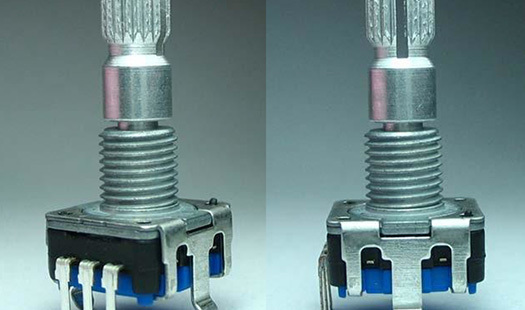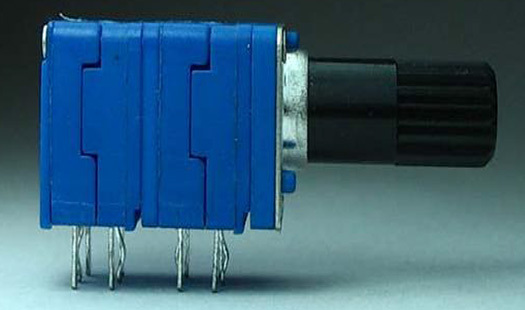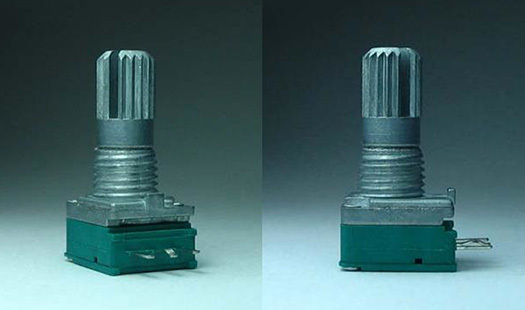Seizing New Tracks and Entering a New Era
Jul 26,2024
On July 24th, the 2024 Dongguan Cross-border E-commerce Procurement and Service Ecosystem Conference, themed "Cross-border E-commerce + Industrial Belt," opened in Humen. The conference brought together 15 of Dongguan's characteristic industrial clusters, over 200 high-quality suppliers, more than 20,000 popular cross-border products, over 40 large cross-border e-commerce platforms and ecosystem partners, and over 2,000 cross-border e-commerce sellers. It was a large-scale event, building a bridge of mutual benefit and cooperation between Dongguan's manufacturing enterprises and cross-border e-commerce buyers, helping more Dongguan enterprises to open up the international market with new cross-border e-commerce models.
Reporters visiting exhibiting companies at the conference found that more and more Dongguan manufacturing enterprises are taking full advantage of the city's position as a major domestic and international source of goods, seizing new opportunities in the development of cross-border e-commerce, and working together with industrial belts to find overseas pathways for high-quality products and brands through cross-border e-commerce platforms.
As one of the fastest-growing, most potential, and most impactful new foreign trade models, cross-border e-commerce has shown tremendous market vitality and resilience in recent years, becoming a new engine for foreign trade growth. This is also true for Dongguan. Since being approved as a national third-batch cross-border e-commerce pilot zone in 2018, Dongguan's cross-border e-commerce has developed rapidly, entering a new era of overseas expansion. Data shows that from 2018 to 2023, Dongguan's cross-border e-commerce import and export volume increased from 37.01 billion yuan to 90.72 billion yuan, with an average annual growth rate of 19.64%, providing important support for promoting stable growth, innovation, and increased momentum in foreign trade.
Written by: Southern Daily reporters He Qiying and Dai Shuangcheng
Planning: Dai Shuangcheng
A. New Approach
Leveraging Cross-border E-commerce to Expand Overseas Markets
Cross-border e-commerce is a vital force in China's foreign trade development and an important trend in international trade development. How to utilize cross-border e-commerce to develop overseas markets is a significant challenge facing many Dongguan enterprises today.
“We started laying out our cross-border e-commerce sector in 2019. After five years of development, we have successfully broken through and grown rapidly in this field,” said Chen Yuanping, chairman of Dongguan Taiyang Precision Machinery Co., Ltd. (hereinafter referred to as "Taiyang Machinery").
In Taiyang Machinery's production workshop, workers are conducting final tests on rows of neatly arranged automatic lathes. These products will be shipped to Russia. As a company specializing in the production of high-speed precision automatic lathes, high-precision CNC lathes, and other precision instruments, before developing cross-border e-commerce, Taiyang Machinery's products were sold in the domestic market using traditional business marketing models and did not venture into overseas markets.
With changes in the trade environment, the number of orders obtained through traditional trade models began to decline, and the company's development entered a bottleneck period. Chen Yuanping decided to take a decisive step: “I used the same enthusiasm I had when I started my business to utilize cross-border e-commerce to go overseas, entering a completely new field. Fortunately, the results did not disappoint us.”
Chen Yuanping introduced that through cross-border e-commerce, products have been exported to dozens of companies in more than 20 countries, including Russia, India, Vietnam, and Cambodia.
Dongguan Sanzhong Intelligent Home Appliance Co., Ltd. (hereinafter referred to as "San Zhong Intelligent"), which produces aroma diffusers, aroma humidifiers, and beauty instruments, also began to develop cross-border e-commerce in 2019. Zhang Yingchang, general assistant of Sanzhong Intelligent, said: "We have always been involved in foreign trade. In the early days, we mainly shipped goods through trading companies or the Chinese offices of overseas companies. As the market developed, we gradually began to contact cross-border e-commerce sellers."
The market is always changing, and companies are always looking for opportunities amidst change. After trying out third-party platforms such as Alibaba International Station, Zhang Yingchang discovered the great potential of cross-border e-commerce and began building the company's independent website in 2022, continuously improving and optimizing it.
“Cross-border e-commerce has brought us a different and diversified market. Orders have changed from large-scale sales to more fragmented orders, not only increasing the company's sales and revenue but also presenting us with different new product demands, allowing us to better adapt to the market, meet needs, and enhance the company's market competitiveness,” said Zhang Yingchang.
The experiences of Taiyang Machinery and Sanzhong Intelligent in "storming" overseas markets are representative of many manufacturing enterprises in Dongguan.
Unlike the past when overseas orders for OEM (Original Equipment Manufacturing) would "come knocking," more Dongguan enterprises entering the ODM (Original Design Manufacturing) and OBM (Original Brand Manufacturing) stages are increasingly taking the initiative to "go out." Leveraging their strong manufacturing capabilities and supply chain advantages, and with the help of cross-border e-commerce, Dongguan continues to supply products to the global market.
“Based on its background as a manufacturing powerhouse, Dongguan has inherent advantages in developing cross-border e-commerce. The support of the real economy and manufacturing industry lays the foundation for its development,” said Bai Ming, member of the Academic Committee and researcher at the Chinese Academy of International Trade and Economic Cooperation, Ministry of Commerce.
As a world-renowned international manufacturing city, Dongguan is one of the most important sources of goods for e-commerce in Guangdong Province and even the whole country. Its 210,000 industrial enterprises have cultivated a complete manufacturing system involving 34 industries and more than 60,000 types of products, forming a trillion-yuan electronic information cluster, four trillion-yuan clusters in equipment manufacturing, new materials, food and beverages, and textiles and apparel, as well as hundreds of billions of yuan clusters in new energy, semiconductors and integrated circuits, and biomedicine. These distinctive high-quality industrial belts distributed throughout the towns and streets are important pillars for the development of Dongguan's cross-border e-commerce.
In recent years, Dongguan has focused on the overall goal of "giving Dongguan manufacturing the wings of e-commerce," combining its industrial and supply advantages to promote high-quality development of cross-border e-commerce in a targeted manner. In the first half of this year, despite various unfavorable factors, Dongguan pressed forward, achieving cross-border e-commerce import and export volume of 42.74 billion yuan. Cross-border direct purchase exports and cross-border e-commerce exports via overseas warehouses performed particularly well. In the first four months of this year, cross-border direct purchase exports and cross-border e-commerce exports via overseas warehouses grew by 19.3% and 11 times, respectively, together increasing the export growth rate by 1.6 percentage points.
“Cross-border e-commerce has brought us many opportunities. When we first started doing cross-border e-commerce, we tried different cross-border e-commerce platforms such as Alibaba International Station, Made-in-China, DHgate, Global Sources, and TradeKey, while assessing the suitable markets and the needs and preferences of customers in different regions. Our products have begun to be sold in more countries and regions,” said Qiao Yuntian, sales director of Dongguan Tianqian Electronics Co., Ltd. (hereinafter referred to as "Tianqian Electronics"), which mainly produces potentiometers, encoders, switches, sensors, and connectors. The company joined cross-border e-commerce in 2020, and cross-border e-commerce accounted for 14% of its 23 million yuan in sales in the first half of the year.
B. New Model
E-commerce Data Feedback to Enterprise Production
Cross-border e-commerce is first and foremost international trade. Whether for businesses (B2B) or individuals (B2C), the primary challenge is the international trade landscape, including changes in products, supply chains, market regions, and trade regulations. Yang Tao, executive director of the Shanghai United E-commerce Research Institute, points out that data is the lifeblood of the digital economy, serving as both the source and the result. Effective use of cross-border e-commerce data is crucial, requiring a data-driven mindset, accurate data sources, and efficient data mining capabilities.
For traditional businesses undergoing digital transformation and expanding overseas, the first hurdle is data processing in the digital economy.
Take Taiyang Machinery as an example. Its automatic lathes are renowned in the industry and widely used in the processing of various screws for hardware, electronics, electrical appliances, watches, instruments, pen tips, glasses, and mobile phone accessories.
"Demand dictates the market. As a research-oriented company, demand-driven e-commerce data can guide our core technological development and enhance product competitiveness." Chen Yuanping stated that using cross-border e-commerce data to guide the company's production is a crucial way to understand market demand and put it into practice, effectively increasing user loyalty.
For Guangdong Wangying Environmental Protection Packaging Co., Ltd. (hereinafter referred to as "Wangying Group"), cross-border e-commerce data has made them more attuned to market trends. Founded in 1996, Wangying Group is a leading printing and packaging company, providing one-stop packaging services for major global cross-border e-commerce brands.
Zhong Shihui, deputy general manager of Wangying Group, introduced: "Data provides significant guidance for our production. Take the toy packaging we do for our clients, for example. Through cross-border e-commerce data, we can understand changes in consumer preferences and prepare the necessary pigments and materials in advance, avoiding the impact of raw material price fluctuations on our products. We have also introduced an APS system to meet diverse and precise production needs."
For daily necessities manufacturers, the importance of cross-border data is self-evident.
What is the user profile of a daily-use silicone squeegee overseas? What are the competing products? The first step in exporting a product is market research, which traditionally takes months and is costly.
"Through cross-border e-commerce platforms, we can test the market acceptance of our products at a lower cost before mass production." Huang Jinfeng, general manager of Dongguan Dongrong Silicone Products Co., Ltd. (hereinafter referred to as "Dongrong Silicone"), introduced: "We listed a squeegee product on the platform with a casual attitude, but it turned out to be widely used abroad and very popular with consumers in Europe, America, Japan, and South Korea, achieving good sales data. This product has been on the market for 5 years and is still selling well."
Sanzhong Intelligent, which is seeking "new opportunities" through cross-border e-commerce, also recognizes the importance of data. "Our aroma diffusers are mainly sold to Japan, the United States, the United Kingdom, Italy, and the United Arab Emirates. Sales through this cross-border e-commerce channel account for 70% of the company's foreign trade sales, becoming the main export channel. Cross-border e-commerce orders generally require ready or near-ready goods, and such orders account for over 50% of the company's total turnover." Zhang Yingchang said: "We also use this historical data to conduct customer analysis, optimize and improve our inventory and near-inventory levels, integrate the supply chain, and improve delivery speed and shorten lead times."
In addition, the establishment of overseas warehouses has provided another effective way for Dongguan enterprises to reduce costs and increase efficiency. "The cross-border e-commerce model includes different modes such as direct mail export (9610), cross-border e-commerce B2B direct export (9710), and cross-border e-commerce export overseas warehouse (9810). Products entering overseas warehouses in bulk are equivalent to forward-positioning the shipping warehouse, which can reduce logistics costs and achieve localized service through logistics services, helping sales-oriented cross-border e-commerce companies reduce costs and respond quickly to shipments." Yang Tao said.
"Our company is currently exploring the overseas warehouse model in the Middle East, and we have also moved after-sales service and centralized procurement and distribution to the local area. For local customers, this allows for faster face-to-face communication and discussions. Customer needs for samples or urgent orders can be quickly addressed locally, which is convenient for customers and saves communication time and costs." Zhang Yingchang introduced.
Shangrui Technology Co., Ltd. (hereinafter referred to as "Shangrui Technology"), founded in 2011, is also a "loyal fan" of overseas warehouses. Starting from agency sales, Shangrui Technology has now become a leading cross-border e-commerce company in Dongguan, with more than 30 self-operated brands and helping nearly 100 traditional manufacturing companies open up overseas online markets.
"More than 90% of our orders are shipped from overseas warehouses. We want to deliver goods to customers as quickly as possible from the warehouse closest to them. Only this kind of fast logistics experience can build stronger brand loyalty." Cheng Tianle, chairman of Shangrui Technology, said.
C. New Policies
Addressing Pain Points and Difficulties
Recently, a batch of cross-border e-commerce goods, including fashion accessories and household goods, from Dongguan Yida Yitong E-commerce Co., Ltd., completed customs supervision at the Dongguan International Mail Exchange Bureau and were loaded onto trucks for shipment to Hong Kong.
The Dongguan International Mail Exchange Bureau, officially operational in 2017, mainly provides cross-border e-commerce companies with a full range of services, including collection, customs declaration, supervision, and logistics.
"In the past, when e-commerce export goods were subject to inspection, we had to cooperate with unloading, sorting, and inspection, and then reload the goods after confirming no abnormalities. The customs clearance process was cumbersome and time-consuming." Zhang Shuyong, head of the Dongguan International Mail Exchange Bureau, said: "Under the new embedded supervision model for cross-border e-commerce, the supervision granularity has been refined from the entire vehicle to individual packages. 100% of the declared lists are sorted by machine, and released packages can be loaded and shipped first, significantly shortening customs clearance time and making logistics arrangements more flexible."
To achieve high-quality development in foreign trade, we need both an "effective market" and a "capable government." Some industry insiders believe that China's cross-border e-commerce development is currently experiencing many favorable factors.
On the one hand, domestic policies are favorable. Cross-border e-commerce has been included in the government work report for many consecutive years, and many municipal and prefectural Two Sessions have mentioned promoting high-quality development of cross-border e-commerce through the "cross-border e-commerce + industrial belt" model. In June this year, the Ministry of Commerce and nine other departments issued the "Opinions on Expanding Cross-border E-commerce Exports and Promoting the Construction of Overseas Warehouses," making overseas warehouses a key focus in the cross-border e-commerce industry. Secondly, online shopping overseas is still in a period of dividends, and there is still considerable room for improvement in global e-commerce penetration rates. Against this backdrop, the "Silk Road E-commerce" new channel, which has developed around the "Belt and Road" initiative's digital economy international cooperation, also has great potential.
Focusing on Dongguan, in September last year, the Dongguan Cross-border E-commerce Digital Trade Demonstration Project was launched; in March this year, the Huawei (Dongguan) Cross-border E-commerce Integrated Service Innovation Center was unveiled, introducing Huawei's capabilities to help Dongguan enhance the agglomeration effect and leading role of its cross-border industry. Favorable policies such as "Implementation Plan for the China (Dongguan) Cross-border E-commerce Comprehensive Pilot Zone," "Interim Measures for the Management of Special Funds for New Cross-border E-commerce Businesses in Dongguan," "Interim Measures for the Management of Special Funds for the Cross-border E-commerce Comprehensive Pilot Zone in Dongguan," and "Work Plan for Special Fund Awards for the Dongguan Cross-border E-commerce Digital Trade Demonstration Project" have been successively introduced, pushing the development of cross-border e-commerce in Dongguan to accelerate.
Hainxin Intelligent Kitchen Co., Ltd. (hereinafter referred to as "Hainxin Intelligent"), one of the first batch of "doubling enterprises" in Dongguan, has tasted the sweetness of expanding exports through cross-border e-commerce channels. From January to May this year, Hainxin Intelligent's export volume reached 170 million yuan, achieving a doubling, of which the proportion of cross-border e-commerce exports was as high as 95%, transforming from a new business model to a main business model.
Zhang Yunyun, customs manager of Hainxin Intelligent, said that under the new model of cross-border e-commerce B2B (business-to-business) export supervision, enterprises can enjoy convenient customs clearance measures such as priority inspection, which has improved export efficiency by 30%, helping Hainxin Intelligent to secure broader market space and more cooperation opportunities.
Recently, the Dongguan Municipal Bureau of Commerce also issued the "Dongguan E-commerce Action Plan for Strengthening the Foundation and Promoting Development" (hereinafter referred to as the "Action Plan"), focusing on six aspects: overseas warehouse construction, cultivating key cross-border e-commerce enterprises (parks), promoting enterprises to conduct cross-border e-commerce business, expanding live sales, accelerating the construction of industrial clusters + live e-commerce bases, and cultivating local e-commerce platforms, to increase support, taking enterprise needs as the guide, and building an e-commerce industrial chain and ecosystem with Dongguan characteristics.
In addition, events such as the Cross-border E-commerce Procurement and Service Ecosystem Conference held in Dongguan have also become important bridges connecting domestic and foreign markets and promoting international trade cooperation. "Participation in the exhibition can enhance the company's brand image and awareness, and better expand the company's sales channels. At the same time, it can also facilitate face-to-face communication with industry colleagues, purchasers, agents, etc., to gain an in-depth understanding of market demand and industry trends, and lay the foundation for future cooperation." said Xie Shili, business manager of Wangying Group.
Towards the world, striving for the future. A continuous stream of products departs from Dongguan, crossing oceans to reach all parts of the globe, like a new era of great nautical exploration, with more and more Dongguan-made products using cross-border e-commerce as an efficient path to better enter overseas markets.
More Information
More Information
RECOMMENDED










